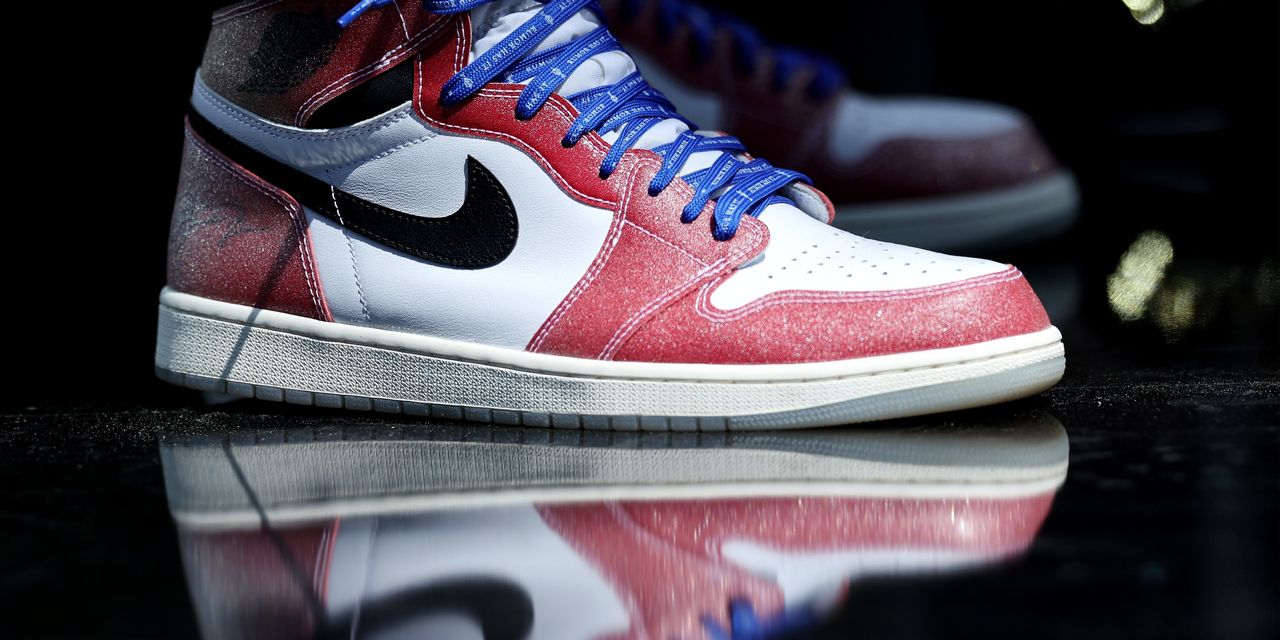The tail end of the second-quarter earnings reporting season lies ahead, but the companies reporting results this week will serve as a checkup on a wealthier consumer — or at least on shoppers’ willingness to treat themselves.
Leading the discretionary-spending herd for the week ahead is Nike Inc., which reports quarterly results on Thursday. The last time the sneaker giant reported results, shares fell after profits missed expectations, amid weaker demand and price cuts intended to draw customers.
On one hand, analysts say, Nike
NKE,
has newer sneakers and the seemingly-irreversible shift toward more casual wear working in its favor. On the other, Nike faces plenty of competition, and recently, some stores that sell sports gear, namely Foot Locker Inc.
FL,
and Dick’s Sporting Goods Inc.
DKS,
haven’t exactly been upbeat about the months ahead.
“Recent inbound data and our checks show a tough backdrop and an
increasingly competitive environment,” TD Cowen analyst John Kernan said in a research note on Friday.
Rivals include the usual, like Adidas
ADDYY,
as well as newer ones, like running-shoe maker On Holding
ONON,
Chief Executive John Donahoe, during Nike’s earnings call in June, said competition in the running-shoe business has been “a competitive battlefield lately with more and more brands joining the market.” However, he said, Nike had become “more aligned and resourced” to compete.
During the call, Nike called out strength in its Jordan and Converse sneakers, and noted the relaunch of the Kobe brand, but Foot Locker executives pointed to weaker than expected sales through the year and a tepid start to the back-to-school season. Dick’s Sporting Goods, meanwhile, also said it was “moderating” its full-year profit outlook, while adding that it was still enthusiastic about business trends.
Other analysts said that any commentary on demand trends in China would be a focus for Nike’s results as that nation’s economy stumbles. And Oppenheimer analysts said athleisure clothing was still popular, and that Nike had managed to thin down its surpluses of apparel and shoes after supply-chain snags and last year’s inflation spike which steered consumers toward basics. And they said the stock was historically cheap and that management had been sufficiently prudent on its financial forecasts.
But even as retailers remain cautious about stocking shelves with new products — thanks to the aforementioned higher prices that have left the economy in flux — Kernan said he expected an increase in sales through Nike’s own e-commerce and store channels. And he said he was upbeat on Nike’s stock as the market improves overall.
This week in earnings
Eight S&P 500 companies report quarterly results in the week ahead, according to FactSet. RV maker Thor Industries Inc.
THO,
reports, amid continued RV malaise. Employee uniform-rental service Cintas Corp.
CTAS,
reports, along with Paychex Inc.
PAYX,
CarMax Inc.
KMX,
and BlackBerry
BB,
Memory-chip maker Micron Technology
MU,
also reports results, amid some analysts’ hopes that demand for AI-powered servers can drive a rebound in demand.
The calls to put on your calendar
Smaller companies, bigger spenders? Other results during the week will offer a look at deeper-pocketed customers. While many of those customers remain better-protected from the inflation storm that began last year, companies tend to rely on them for bigger profits. Earnings on Tuesday from United Natural Foods Inc.,
UNFI,
the primary grocery distributor for Whole Foods, will give some sense of how wealthier shoppers are navigating higher food prices. Elsewhere, results from ski-resort operator Vail Resorts Inc.
MTN,
upscale wine maker Duckhorn Portfolio Inc.
NAPA,
and cruise operator Carnival Corp.
CCL,
are also due.
The number to watch
Costco sales: Elsewhere, the battle with inflation is still very real for much of the nation’s not-as-wealthy population, who over the past year have often made fewer shopping trips and spent more on essentials like food and gasoline than less-basic items like clothing and electronics. More detail on where those trends stand will come from warehouse membership chain Costco Wholesale Corp.’s quarterly results on Tuesday.
Data from Placer.ai shows that Costco
COST,
brought in a decent amount of foot traffic through the back-to-school season. But that data also raised questions about how much room for growth is left in its biggest markets. And there were other questions about how rising fuel prices might reshape shopper behavior, and whether the chain’s prices in stores might head lower amid stiffer competition with Sam’s Club. There were also questions about when Costco might raise membership fees, as its customers struggle with higher prices.
From an investment standpoint, UBS analyst Michael Lasser, in a research note on Thursday, said there was still a lot to like about the retailer, as it finds ways to attract customers and boost profits up ahead.
“Given the continued economic strain on consumers, we believe that Costco’s executive membership penetration likely remained strong as people looked to maximize their spending power,” UBS analyst Michael Lasser said in a research note. “Moving forward, we believe (Costco) can continue to appeal to a cash strapped consumer, and has a potential catalyst in place with a membership fee hike likely next year.”
Read the full article here










Leave a Reply